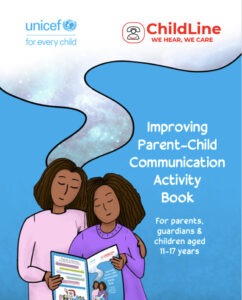[et_pb_section fb_built=”1″ _builder_version=”4.4.6″ hover_enabled=”0″ da_disable_devices=”off|off|off” da_is_popup=”off” da_exit_intent=”off” da_has_close=”on” da_alt_close=”off” da_dark_close=”off” da_not_modal=”on” da_is_singular=”off” da_with_loader=”off” da_has_shadow=”on”][et_pb_row _builder_version=”4.4.6″ hover_enabled=”0″ custom_margin=”-28px|auto||auto||”][et_pb_column type=”4_4″ _builder_version=”4.4.6″][et_pb_text _builder_version=”4.4.6″]
As a parent or guardian, have you ever been in a situation where you were too angry or frustrated to respond to your child calmly and positively? Parenting is a demanding but rewarding opportunity to help shape the minds of young persons. Children can make you angry at times and parents need to use techniques that will help them manage their emotions in difficult situations. This is also necessary because the likelihood of a child being abused by their caregivers significantly increases when the persons engaging in the disciplinary actions are angry or feeling overwhelmed by stress.
Here are seven (7) suggestions that can be used by parents to remain calm when they are experiencing issues with their children:
- Stay calm and take deep breaths – this can help you to think about your actions before you engage in disciplinary measures. For example, a parent may think about shouting at their child after rules are broken, however, the parent may be able to speak with the child calmly after deep breathing. Many parents report that they can calmly deal with their children after taking slow and deep breaths (inhale through the nose and exhale through mouth).
- Find a friend who listens – Having someone to express your feelings can significantly help to calm you down and gain another perspective on how you should approach the matter.
- Allocate time for yourself – As a parent/guardian, be sure to set aside time for yourself during the day. During this time, you can watch a show, read a book, sleep, or engage in an activity that you enjoy. This contributes to having good mental health during difficult times.
- Be aware of your emotions – Parents/guardians who can acknowledge their emotions, and the cause of those emotions are less likely to abuse their children when they become frustrated.
- Write it down – Journaling is a useful way for you to keep track of your thoughts and emotions. This also provides parents with a form of documentation so that they can reflect on their actions and feelings with hopes of improving it in the future.
- Be mindful and present – Sometimes it is difficult for parents to remember that their children need them every day, even if it is not a crisis. Try putting yourself in the child’s position or their shoes. Ask yourself questions like, “does my child need me more at this moment to be focused on him/her to help them remain calm?” If your children are calm, parents would likely be calm.
- Create a mantra – Mantras are statements that are repeated frequently. Having a mantra can be an effective strategy for calming and reminding oneself of an appropriate way to behave. For example, a mantra can be “to think before you act” or “count to 10 before responding.” In situations when children may be getting on your last nerve, repeat your chosen mantra to help guide your behaviour. It is also possible to have multiple mantras.
Here are some things that you can say to yourself when parenting becomes challenging:
- I am doing the best I can
- Parenting can be difficult for all parents
- I have done well so far raising these children
- It is okay to make mistakes… I will learn from them
- I can control my anger
- My children mean well/are good intentioned
- There are ways to get support
- There is someone I can talk to
- My child and I are learning together
- I will do my best to overcome any challenge
[/et_pb_text][/et_pb_column][/et_pb_row][/et_pb_section]









